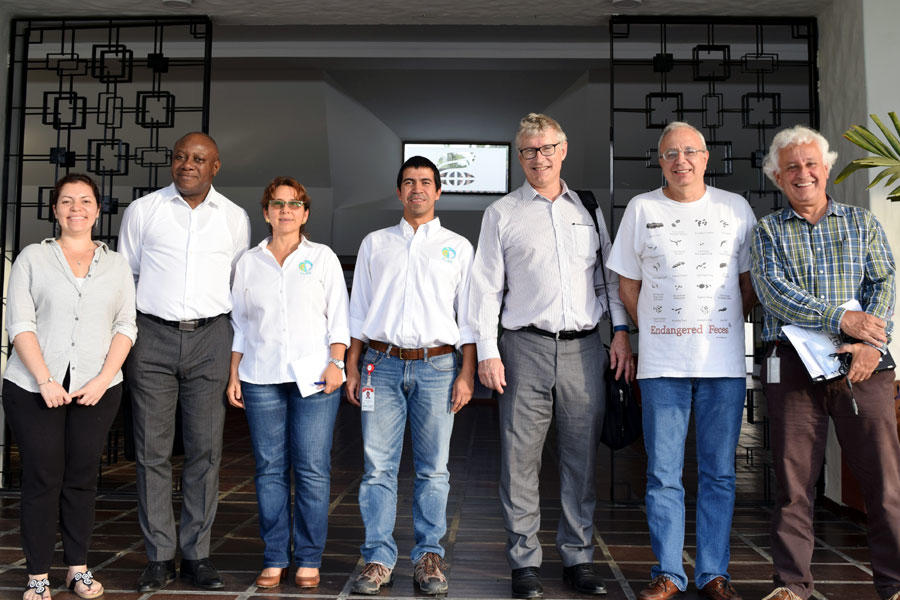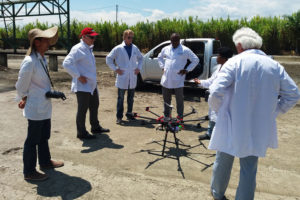IRRI, AfricaRice and CIAT strengthen their alliance in rice research

Matthew Morell, Director General of the International Rice Research Institute (IRRI), Harold Roy-Macauley, Director General of AfricaRice, and Ruben Echeverría, Director General of CIAT, met from May 19 to 24 at CIAT headquarters in Palmira, Colombia.
The meeting, which gave the possibility to Morell and Roy-Macauley to interact with fellow rice researchers and know in more detail issues related to climate research, was given under the agreement signed by IRRI, AfricaRice and CIAT last January in Los Baños, Philippines, where they pledged to cooperate in their rice research agendas in coordinated manner, through the Global Rice Science Partnership (GRiSP).
 “We have been able to identify several areas of research in which the three centers can work together, complement each other and thus strengthen more”, said Fernando Correa, CIAT’s rice program leader. “We analyzed the experience of the first phase of GRiSP and how collaboration and interaction between Centers has evolved during this time and how we can strengthen that further in the second phase starting in 2017″.
“We have been able to identify several areas of research in which the three centers can work together, complement each other and thus strengthen more”, said Fernando Correa, CIAT’s rice program leader. “We analyzed the experience of the first phase of GRiSP and how collaboration and interaction between Centers has evolved during this time and how we can strengthen that further in the second phase starting in 2017″.
This alliance aims to address important research challenges such as malnutrition, droughts and floods, the high contribution of agriculture to emissions of greenhouse gases, degraded and unproductive land and inequitable gender relations in the rural sector. They also discussed the great challenge of increasing global food availability by 60% (100% in developing countries) to feed between 9 and 10 billion people by 2050.
Given this, CIAT scientists who participated in the meeting provided details on the research being carried out in Latin America. Similarly, researchers of the Latin American Fund for Irrigated Rice (FLAR) and Hybrid Rice for Latin America (HIAAL) also interacted with these leaders, demonstrating FLAR and HIAAL work in the field.
“The meeting allowed us to analyze and reach agreement on the development of a common strategy that allows us to focus on public-private partnerships for the benefit and sustainability, including the financial part, of rice research in the near future. It was of great interest to the two directors to know and understand more about the FLAR operating mechanism as a model of interaction between CIAT and the public-private sector, which could be applied both in Asia and in Africa in the future “, added Correa.
 The agenda was complemented with informative talks of the CIAT’s Decision and Policy Analysis area on topics such as big data, modeling, the water footprint of rice in Latin America and impact assessment.
The agenda was complemented with informative talks of the CIAT’s Decision and Policy Analysis area on topics such as big data, modeling, the water footprint of rice in Latin America and impact assessment.
These three centers will continue to work to strengthen their common points of research, seeking to contribute to overcoming the challenges mentioned.
